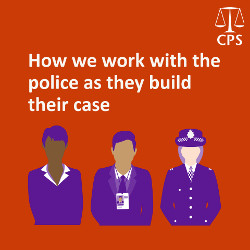In some cases, the police will need to look at information that other people or organisations hold about you. This is sometimes called ‘third party material’.
For example, they might need to look at medical records if you’ve spoken to your doctor about the incident.
The police will only ever look at this kind of information if they have a reason to believe that it might be relevant to your case.
For example, the police can’t ask for access to your medical records ‘just in case’ there might be something of relevance to the investigation. They also can’t ask for access just because they are investigating a sexual offence.
Before requesting information from a third party the police must consider whether there is another way they could access the information they think might be relevant, for example by speaking to a witness.
If the police decide that they do need to request information from a third party, they will make sure that their request is focused so that they are only asking for the information which they think might be relevant to the case. For example, if they were asking for your medical records they might ask for access to a specific month rather than your full medical record.
If the police think they need to ask for your counselling notes, they cannot do this automatically. A senior police officer must approve the request. That is because the police must start from the position that they don’t need your counselling notes and they must be able show the information in the counselling notes will clearly help them to prove or disprove important parts of the investigation, for example, something that could help confirm what happened or show that something did not happen. The process the police have to go through is part of a test. This test is called the ‘substantive probative value test’.
The police will keep you up-to-date with the investigation and you should let them know if you have questions or concerns about any of the types of evidence that they might look for.
